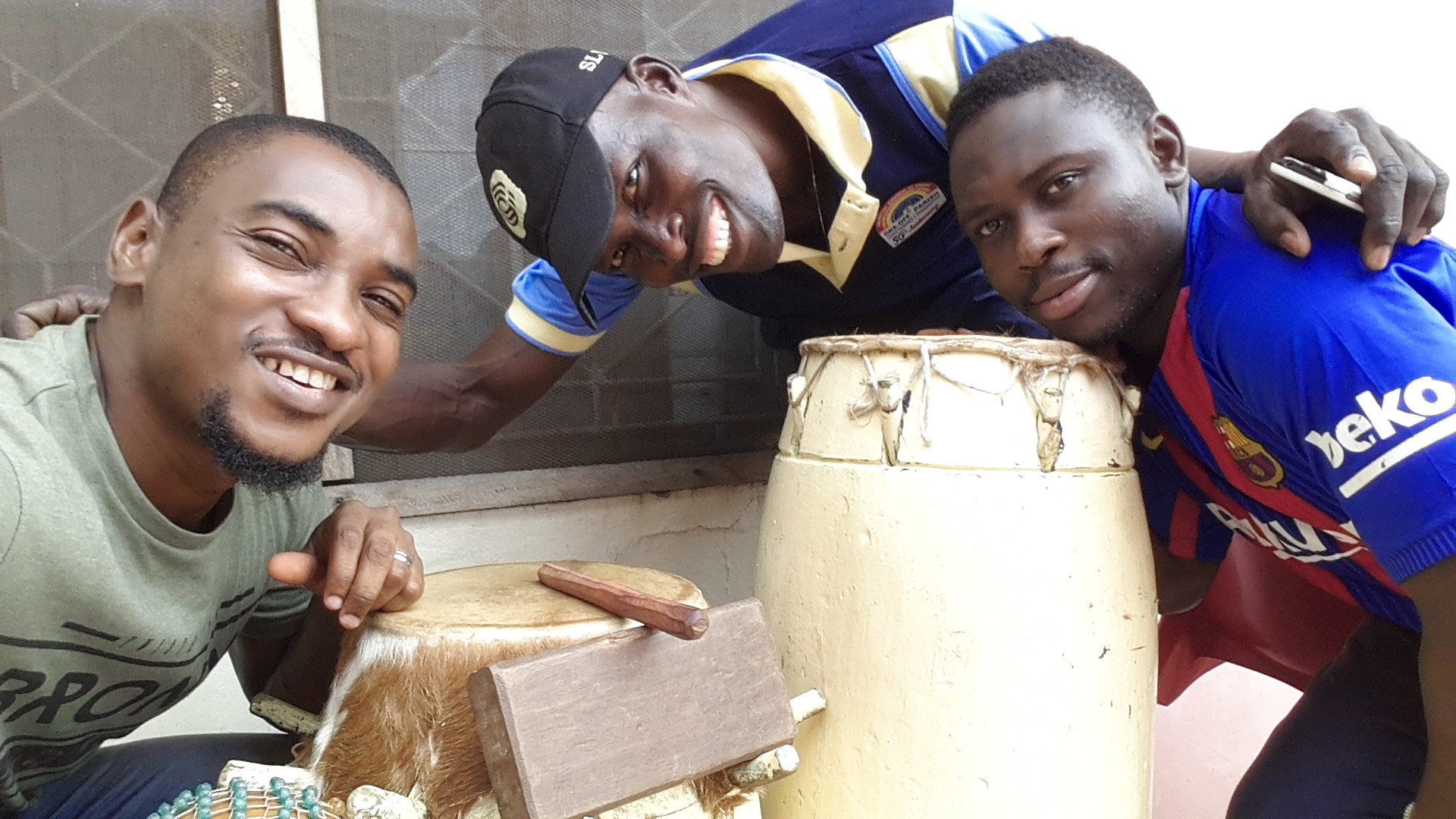African Picture Book Author Spotlight: Adebayo Adegbembo
Meet Nigerian children’s book author, Adebayo Adegbembo (or as his friends call him, Ade)I
I first learned about Ade after doing some research on Nigerian language children’s books for a friend. I quickly found out that books were just the beginning of Ade’s work!
His work extend to blogging to developing kid-approved African language and culture learning apps to animation and even graphic designs! .
The Lagos-based entrepreneur did not begin his career in the arts. He obtained his degree in Engineering Surveying but his love for all things creative including writing and computer programming led him down his current career path, as the founder and lead programmer at Genii Games and project manager at IllustrApps. There he uses both platforms to fulfill his passions for his primary audience (Genii Games customers) and others on a consulting basis.
Needless to say, I am not the only person who is a fan of his work! When I shared his book “Yoruba101 Greetings: Ade Visit His Parent,” on the Readers Inspired Instagram, the post received over 100 likes! I asked Ade to share his story. He discusses his writing, his advice to new children’s book authors, and his exciting new projects.
When did you first become interested in writing for children? Did you always know you wanted to write African heritage books?
I’ve always loved writing but never really thought I’d write for children. My first foray vis-à-vis Yoruba101 Greetings book was a natural offshoot of the app by the same name. I figured if I had a great story app then I could spin another product from it as an experiment for a different audience.
In addition to children’s books you also have developed mobile apps. What made you decide to create African heritage content in the tech space as well?
Computer programming is one of my passion. I decided to channel my skills towards African heritage apps in a bid to make the subject interesting for my niece, Temiloluwa. That was my initial goal when I started in 2012. I just wanted to do something that would grow with her and make her love for my native culture, Yoruba, more fun and engaging in light of the steady decline of the language. It struck a chord with others, and it became something I’ve taken further as my lifelong purpose to meet the needs of other kids and adult beginners. It also adds to the growing resources that serve to promote and preserve our native heritage.
You published your books while based in Nigeria. Do you think there are any unique challenges to publishing and marketing a book while based on the continent? What are they and how did you overcome them?
My publishing route was digital, as opposed to the traditional publishing approach involving brick-and-mortar publishers. Specifically, I used Amazon’s print-on-demand service and also Kindle direct publishing (KDP) for my book. My knowledge of the publishing space in Nigeria is minimal. Marketing my writing hasn’t been much of a challenge, given the barriers that social media help overcome.
That said, one significant challenge I experienced was non-support for native languages by Amazon on its Kindle device, which I overcame by writing to them. I shared my experience in this piece, African languages: Lessons from my first bilingual storybook in Yoruba.
Did you have any fears or self-doubts when writing an African heritage children’s book (or language books specifically)? What were they and how did you overcome them?
I wouldn’t say I had fears. My primary goal for any idea is to finish and launch. Hence, with the Yoruba101 Greetings book, I wanted to learn the way I love to; by firsthand experience.
What advice do you have for authors writing African heritage children’s books?
My advice is that they go for it! I don’t think we can have enough of interesting literature across diverse genres and ours represents a mostly untapped space. We should write more and for fun too.
What is your favourite African heritage children’s book? While I had lots of them growing up, I can’t recall any specific titles. In recent times, my genre of African heritage books is primarily within the adult space. One of my all-time favourite is “The Lion and the Jewel” by Professor Wole Soyinka. I’m also a huge fan of Chimamanda’s books (Purple Hibiscus is my favourite), as they give me a good sense of humorous nostalgia.
Any advice on how people can encourage children to read more diverse books?
I think one way would be to help them see the importance. So, perhaps, if the story theme could be contextualized such that it’s then recommended within the context of a subject that resonates with the kid.
What are you working on next? Are there any other African heritage children’s books that you have written?
I’m currently working on updated versions of my Yoruba and Igbo language-learning apps, Yoruba101 and Igbo101. My team recently concluded over 20 hours of recordings, and we’re currently putting the whole together for major updates in 2019.
Three Fun Facts
I’m an avid dreamer. Throughout the day I regularly close my eyes and just dream, it helps me stay motivated.
I have a personal diary that I’ve been writing in since 2007. I write about my dreams, fears, hopes, current state of my mind among others.
I eat a lot of chili pepper and hot spice. Most of what I consume has a lot of hot spices.
Other Books by Adebayo Adegbembo
Tortoise and the Magic Drum (Adventures of the Tortoise Book 1)
Tortoise and the Princess (Adventures of the Tortoise Book 2)
Connect with Adebayo: Web | LinkedIn | Twitter | Instagram |


